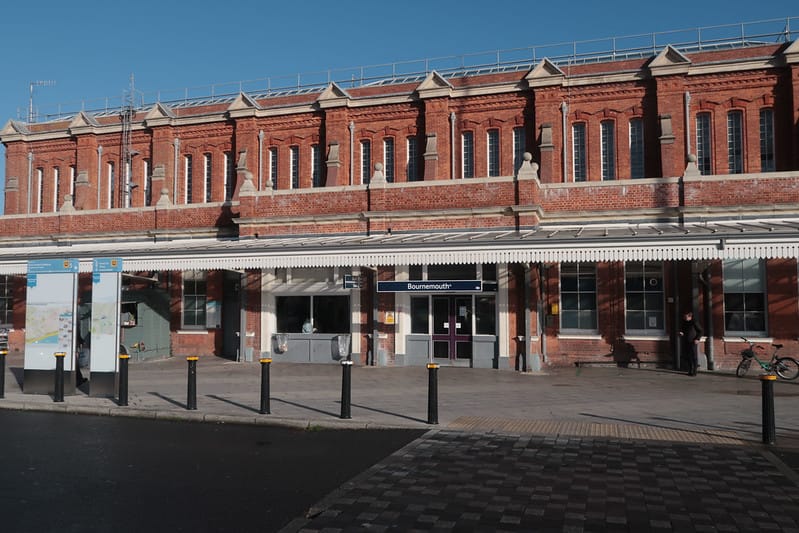Cornwall boasts a diverse railway network that connects its picturesque towns and coastal areas. Here are the main train lines operating within the county
1. Cornish Main Line
- Route: Penzance to Plymouth
- Highlights: This primary artery traverses Cornwall, linking major towns and facilitating connections to branch lines.
Cornish Main Line
Route: Penzance to Plymouth
Stations:
- Penzance
- St Erth
- Hayle
- Camborne
- Redruth
- Truro
- St Austell
- Par
- Lostwithiel
- Bodmin Parkway
- Liskeard
- Menheniot
- St Germans
- Saltash
- Plymouth
Service Frequency:
- Approximately two trains per hour between Penzance and Plymouth.
- Some services extend to London Paddington, often via high-speed Intercity Express Trains (IET).
2. Atlantic Coast Line
- Route: Par to Newquay
- Highlights: Offers access to the north coast’s beaches and the popular resort town of Newquay.
Atlantic Coast Line
Route: Par to Newquay
Stations:
- Par
- Luxulyan
- Bugle
- Roche
- St Columb Road
- Quintrell Downs
- Newquay
Service Frequency:
- Generally, five trains per day in each direction.
- Seasonal variations may increase frequency during the summer months.
3. Looe Valley Line
- Route: Liskeard to Looe
- Highlights: Follows the East Looe River, providing scenic views en route to the coastal town of Looe.
Looe Valley Line
Route: Liskeard to Looe
Stations:
- Liskeard
- Coombe Junction Halt (request stop)
- St Keyne Wishing Well Halt
- Causeland
- Sandplace
- Looe
Service Frequency:
- Typically one train every two hours.
- Services may be more frequent in peak tourist seasons.
4. Maritime Line
- Route: Truro to Falmouth Docks
- Highlights: Connects the cathedral city of Truro with the maritime town of Falmouth, known for its deep natural harbor.
Maritime Line
Route: Truro to Falmouth Docks
Stations:
- Truro
- Perranwell
- Penryn
- Penmere
- Falmouth Town
- Falmouth Docks
Service Frequency:
- Generally two trains per hour in each direction.
- Frequency may be reduced to hourly in off-peak periods.
5. St Ives Bay Line
- Route: St Erth to St Ives
- Highlights: Renowned for stunning coastal vistas, this line is a favorite among tourists heading to the artistic haven of St Ives.
St Ives Bay Line
Route: St Erth to St Ives
Stations:
- St Erth
- Lelant Saltings
- Lelant
- Carbis Bay
- St Ives
Service Frequency:
- Typically two trains per hour in each direction.
- During peak tourist seasons, additional services may be added.
6. Tamar Valley Line
- Route: Plymouth to Gunnislake
- Highlights: While originating in Devon, this line crosses into Cornwall, offering views of the Tamar Valley Area of Outstanding Natural Beauty.
Tamar Valley Line
Route: Plymouth to Gunnislake
Stations:
- Plymouth
- Devonport
- Dockyard
- Keyham
- St Budeaux Victoria Road
- Bere Ferrers
- Bere Alston
- Calstock
- Gunnislake
Service Frequency:
- One train every two hours in each direction.
- Morning and evening peak times may have additional services.
Heritage Lines
Bodmin & Wenford Railway
Route: Bodmin Parkway to Bodmin General and Boscarne Junction
Stations:
- Bodmin Parkway
- Bodmin General
- Boscarne Junction
Service Frequency:
- Seasonal operation with several steam or diesel-hauled trains daily.
- Special services during events or holidays.
Helston Railway
Route: Prospidnick to Truthall Halt
Stations:
- Prospidnick Halt
- Truthall Halt
Service Frequency:
- Operates on select days with heritage diesel or steam services.
Useful Notes
- Service frequencies may vary based on the season, day of the week, or operational requirements.
- Branch lines like the St Ives Bay Line and the Looe Valley Line are especially popular in summer, and additional services might be scheduled.
- Heritage railways often operate during weekends and holidays, with timetables available on their respective websites.
Cornwall’s railway network is not only practical but also a scenic and enjoyable way to explore the county’s stunning landscapes and coastal areas.




